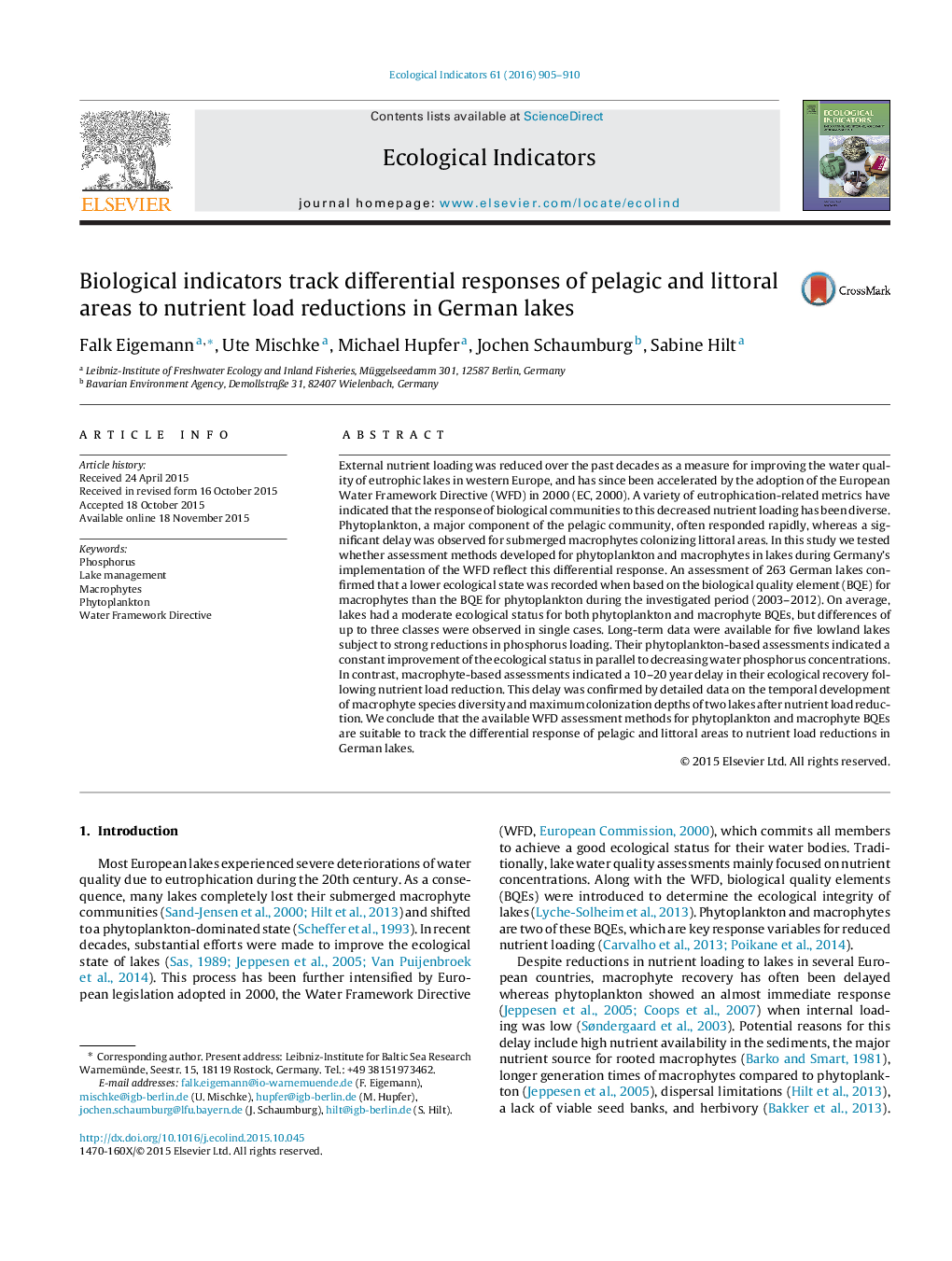| Article ID | Journal | Published Year | Pages | File Type |
|---|---|---|---|---|
| 6293756 | Ecological Indicators | 2016 | 6 Pages |
Abstract
External nutrient loading was reduced over the past decades as a measure for improving the water quality of eutrophic lakes in western Europe, and has since been accelerated by the adoption of the European Water Framework Directive (WFD) in 2000 (EC, 2000). A variety of eutrophication-related metrics have indicated that the response of biological communities to this decreased nutrient loading has been diverse. Phytoplankton, a major component of the pelagic community, often responded rapidly, whereas a significant delay was observed for submerged macrophytes colonizing littoral areas. In this study we tested whether assessment methods developed for phytoplankton and macrophytes in lakes during Germany's implementation of the WFD reflect this differential response. An assessment of 263 German lakes confirmed that a lower ecological state was recorded when based on the biological quality element (BQE) for macrophytes than the BQE for phytoplankton during the investigated period (2003-2012). On average, lakes had a moderate ecological status for both phytoplankton and macrophyte BQEs, but differences of up to three classes were observed in single cases. Long-term data were available for five lowland lakes subject to strong reductions in phosphorus loading. Their phytoplankton-based assessments indicated a constant improvement of the ecological status in parallel to decreasing water phosphorus concentrations. In contrast, macrophyte-based assessments indicated a 10-20 year delay in their ecological recovery following nutrient load reduction. This delay was confirmed by detailed data on the temporal development of macrophyte species diversity and maximum colonization depths of two lakes after nutrient load reduction. We conclude that the available WFD assessment methods for phytoplankton and macrophyte BQEs are suitable to track the differential response of pelagic and littoral areas to nutrient load reductions in German lakes.
Related Topics
Life Sciences
Agricultural and Biological Sciences
Ecology, Evolution, Behavior and Systematics
Authors
Falk Eigemann, Ute Mischke, Michael Hupfer, Jochen Schaumburg, Sabine Hilt,
